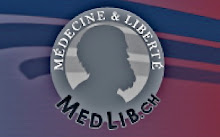As Gideon Sofer, who suffers from Crohn’s disease points out in a recent Wall Street Journal op-ed: “The FDA is killing Crohn’s patients”, millions of individuals depend on the rate at which new drugs reach the market. Sofer condemns the FDA for ethically questionable protocols that impose placebos on groups of patients in legthy double-blind randomized clinical trials and withhold their access to potential cure.
One can but sympathize with Gideon Sofer who not only struggles against Crohn’s disease but has also had to endure the frustrations that drug regulatory processes inflict on those afflicted by chronic (i.e. currently incurable) and debilitating illnesses. Bureaucracies such as the FDA, or its European siblings do indeed obstruct access to potentially curative new treatments. The shortcomings Gideon Sofer condemns however, are less due to the « deliberate cruelty » of administrative agents than to the inertia of insensitive policy makers.
The real “patient-killers” are obsolete institutional designs originally designed to protect lay and uninformed citizens of past times but that now lead to therapeutic dead ends while violating patient rights and expectations. Regulatory policies have not adapted to an ever-expanding range of patient information lanes or to the exponential progress of pharmaceutical and medical device industries. Worse, the concepts that guide approval processes fundamentally conflict with research towards genetically guided « custom made » therapy and thus stifle essential medical innovation.
***
The market of ideas offers a blueprint that streamlines access to new therapies and brings back health decision-making processes into the hands of those who are primarily affected by such decisions. Bartley Madden, an independent researcher backed by Nobel Price laureate Vernon Smith, has developed a “dual tracking” institutional design that would enable patients such as Gideon Sofer to circumvent lengthy drug approval processes. This model is not designed to replace FDA drug testing but aims to introduce alternate pathways to innovation. It relies: a) on legal and institutional changes that would allow duly informed patients to access to not yet approved curative substances by contracting directly with the producers. b) On an open Tradeoff Evaluation Database necessary to doctor-patient based assessment of risks and potential benefits of taking the fast lane to experimental therapy.
While open databases are currently being developed for orphan diseases and could be easily expanded to cover wider therapeutic fields, an update of legislative frameworks implies change in political mind-sets. In the United States, legislation that accelerates innovation and enhances liberty should theoretically generate bipartisan support… even in health care! The implementation of a “dual tracking” model would stimulate medical progress and help numbers of patients find their way to improvement or cure before it’s too late for them. It would also signal that ailing humans have a right to life and liberty.
Ref: “The FDA is killing Crohn’s patients” by Gideon J. Sofer WSJ Dec. 30, 2008




